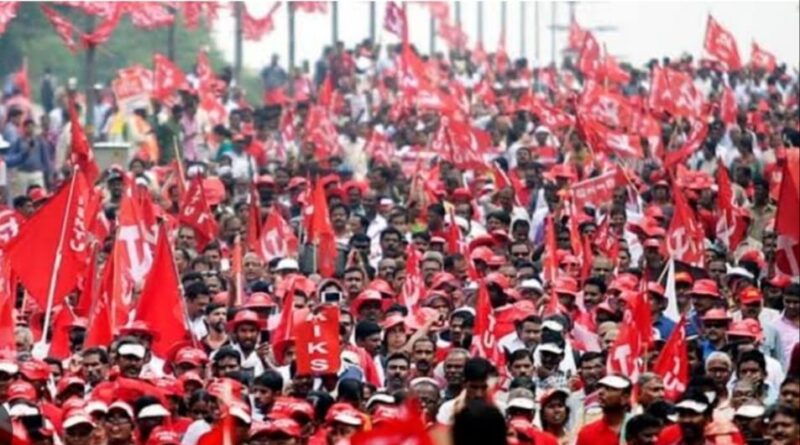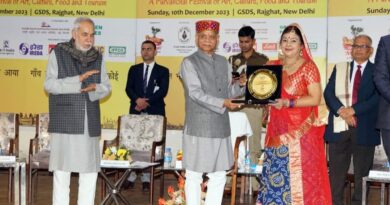India Is Not for Sale : AIKS & Himachal Kisan Sabha Gear Up for Nationwide Protest Against U.S. Trade Talks
All India Kisan Sabha and Himachal Kisan Sabha call for demonstrations on April 21st over agriculture, dairy, and trade concerns
As U.S. Vice President J.D. Vance prepares to land in India for crucial trade negotiations, a storm is brewing across rural India. Farmer organizations, led by the All India Kisan Sabha (AIKS) and Himachal Kisan Sabha (HKS), have announced a wave of protests on April 21, 2025, against what they see as one-sided and harmful trade agreements between India and the United States.
Under the rallying cry “Vance Go Back! India is Not for Sale!”, farmers will take to the streets, burn effigies, and raise their voices in villages and district headquarters across the country. The core of their demand? A complete withdrawal from ongoing trade talks that threaten to open India’s agricultural markets to cheap imports and potentially devastate local farming communities.
What’s Fueling the Protest?
According to farmer unions, the Indian government is moving toward lifting tariffs and other protective barriers on key sectors like agriculture, dairy, and fisheries—all under pressure from the U.S. administration. AIKS alleges that these steps are being taken without any parliamentary discussion or consultation with state governments.
They’re particularly alarmed by U.S. demands to open Indian markets to American dairy products, GM corn, ethanol, soybeans, and even horticultural goods like apples, almonds, and walnuts. Such imports, farmers say, could flood local markets, crash prices, and spell doom for millions of small and marginal farmers already battling rising debt and climate stress.
A Blow to Cotton Farmers Amid Crisis
India’s cotton sector is already reeling. Production has fallen from 37 million bales in 2017-18 to an estimated 31.6 million bales in 2023-24. Suicides among cotton farmers have tragically increased, and now, fears loom large over cheaper American cotton flooding the market.
The farmer unions argue that engaging in trade talks during such a crisis is not only economically unsound but morally irresponsible.
No Transparency, No Accountability
Another major concern is the lack of transparency. Activists say the ongoing trade talks—aimed at boosting U.S.-India trade to $500 billion by 2030 under “Mission 500”—are being held behind closed doors. There’s no clarity on labor standards, no role for states, and no parliamentary oversight.
They also point out how countries like Canada, Mexico, and China stood up to U.S. trade pressure, while India—despite being less dependent on U.S. exports—is bending too easily.
Beyond Farms: Pharma and MSMEs Also at Risk
The implications go beyond agriculture. Farmer leaders warn that Indian sectors like generic pharmaceuticals and auto parts, dominated by MSMEs, could also be affected by lopsided trade deals that favor multinational corporations.
They believe the visit by Vice President Vance is part of a broader attempt to pressure the Indian government into prioritizing corporate profit over public interest.
The Resistance Builds
In this context, the Kisan Sabha is positioning itself as a symbol of resistance. “We will not allow India’s agricultural backbone to be dismantled in the name of free trade,” said farmer leaders Ashok Dhawale, Dr. Kuldeep Singh Tanwar, Vijoo Krishnan, and Rakesh Singha in a joint statement.
On April 21st, expect to see farmers out in force, holding up placards, burning effigies, and voicing one powerful message:
“Vance Go Back! India is Not for Sale!”



